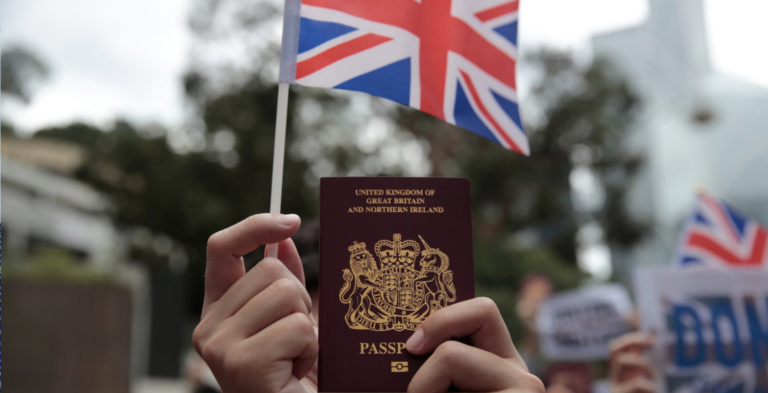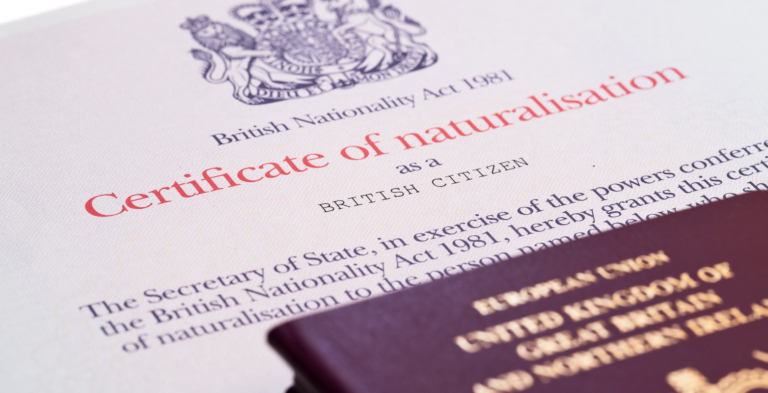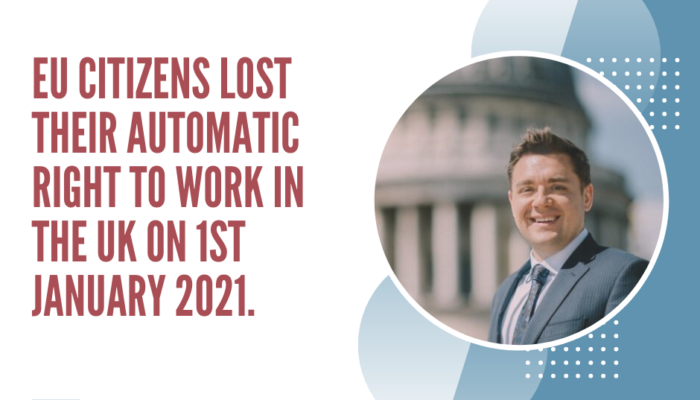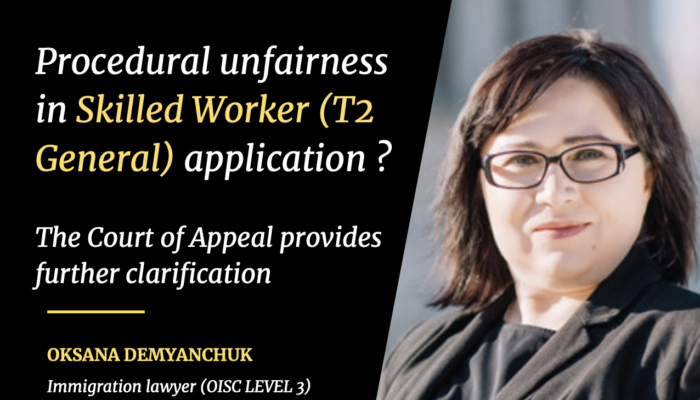Skilled Worker Visa

If you want to come to the United Kingdom to work in a skilled role for a sponsoring business, you will need a Skilled Worker Visa.
- What is a Skilled Worker visa?
- Eligibility requirements.
- Job requirements.
- Required documents.
- Applying process.
- Processing time.
- Fees.
- How long does it last?
- Extending your visa.
- How can we help?
What is a Skilled Worker visa?
Skilled Worker visa (formerly known as the Tier 2 General visa) is a permit that allows skilled people born in other countries to come and work in the United Kingdom. This long-term permit is issued for up to five years and allows a foreigner to live in the country for that period. However, the visa works only as long as you keep that same position with the same employer. Once you decide to switch your occupation or the allowed period expires, you will need to get a new permit.
A valid Skilled Worker (Tier 2) visa grants you numerous rights. It enables you to:
- work in your sponsored job or take on additional job (up to 20 hours a week) in the same field;
- relocate your spouse (or partner) and children to the UK under certain circumstances;
- study, perform unpaid work, or travel abroad with the right to return to the country;
- apply to live indefinitely in the United Kingdom after five years of legal employment.
However, the UK Skilled visa doesn’t enable you to claim most social benefits or the State Pension. It is also forbidden to switch jobs or employers under one visa; in order to do so, you will need to update it. If your application is approved, you will receive a full list of rights provided by your visa.
The newer Skilled visa has several advantages compared to the Tier 2 work visa. It has a significantly broader range of eligible positions, lower salary requirements (the minimum salary for the older Tier 2 visa was £30,000), and no cool-down period. It also allows recent graduates to apply for a permit, and employers are no longer obliged to conduct the Resident Labour Market Test to determine whether a local worker is available for the role. That means getting a UK sponsored work visa is now easier than before. Let’s take a closer look at how to get a work visa in the UK.
Eligibility requirements
In order to receive a permit to work in the United Kingdom, you need to comply with several UK work visa requirements established by the government.
Receive an actual job offer
First of all, you have to find a UK-based company ready to employ you and get a valid job offer from it to be eligible for a visa. The company itself must be reputable enough to appear on the Home Office’s list of licensed sponsors with an A-rating. B-rated companies are unable to hire new international staff until they meet the compliance requirements. Your employer must also be licensed to hire foreign staff in the first place.
Get a valid Certificate of Sponsorship
In order to become truly eligible for a UK Skilled work visa, you will need to receive a valid CoS from your employer. This virtual certificate specifies which position you are expecting to fill, how long you’re going to be employed, and so on.
Be skilled enough and have a sufficient amount of money
You need to have skills that are at least matching RQF Level 3 to be considered a skilled worker. You will also need to prove that you have enough money, at least initially. It can be done by providing a bank statement or a note proving that the company will cover these costs for you. You must deposit at least £1,270 to your account and hold that sum there for at least 28 consecutive days before the date of your application.
Know English well
All skilled applicants for a worker visa in the United Kingdom need to prove that they can understand and speak English well enough. You can prove your English skills in several different ways. The most common way is to pass a test aligned to the CEFR standard; you’ll need to prove that you are at least level B1 in every category.
Job requirements
Your sponsored position also has to meet several specific criteria to allow you to receive a visa.
Eligible positions
There is a definitive list of positions that can be filled with foreign skilled workers. In order to receive a visa, your role must be on the list. If you are unsure whether your position is supported, ask the future employer about it.
Minimum salary
There is also a lower limit on possible salary for skilled workers set by the Home Office. The minimum salary you can receive to remain eligible for a visa is £38,700 (from 4 April 2024). However, some positions have different salary requirements. If you’re in a field that has higher rates, your wage will need to match it. The current rates for such fields are frequently updated by the Home Office.
There are also conditions under which you can receive less than the limit and remain eligible for a UK sponsorship work visa. These conditions include a workforce shortage in your current field, a status of a STEM PhD, or a postdoctoral position in science or higher education. You can also earn less if you are under 26, still studying, or a recent graduate. If you are unsure whether your wage actually makes you a suitable candidate for a visa, discuss it with your employer.
Required documents
In order to apply for a Skilled Worker visa in the UK, you need to prepare numerous documents which prove your identity or skills and otherwise support your application. The most necessary papers you’ll be asked to submit include:
- your passport (with a blank page);
- a unique CoS identification number;
- the position name and expected wage;
- the occupation code of your position;
- the name of your future employer;
- your employer’s sponsor license number;
- a proof that you have enough money;
- your criminal record (in some fields).
The list is not exhaustive, and various conditions related to your application may require other papers to be provided to the officials. You will also be asked to provide your biometric data. You can provide it by visiting a visa application center in your home country or through the official mobile app. Gathering and submitting all the papers correctly is rather difficult and time-consuming, so it’s usually wise to ask immigration lawyers for help.
Applying process
Once you have received a job offer and a valid CoS, you can start the application process itself. It can be initiated online via the official Home Office website. Visit the website, find the application form, and just start filling it. You do not have to do it all in one sitting; if you pause the process, your progress will be saved for later. Just follow the instructions: enter all the required information and provide requested papers. If necessary, request additional information from your employer.
Once you’ve uploaded all the necessary documents and finished the application, pay the fees to finish the process. Submit your application and wait for the official decision. It can take up to three weeks for the officials to process your UK high skilled visa application, so be patient. If your case will require any additional data, UKVI authorities will reach out to you. If not, you will simply receive an answer. If you have filled all the fields of the form correctly, you will probably get your visa confirmed.
However, your application may also be refused by the officials. There are several reasons for that, but the most common are the following:
- you have failed to complete the form or misplaced some data;
- you haven’t paid some of the fees or other associated costs;
- you haven’t provided enough relevant papers supporting your eligibility;
- your immigration and criminal history is questionable or uncertain;
- your employer doesn’t have a valid sponsor license or has other legal problems.
If your visa application is turned down, you have several available options. However, you need to act fast: you have just 28 days to solve the problem if you submitted your papers from another country or just 14 days if you applied inside the UK. For example, you can request an administrative review from UKVI officials, but it may be a rather complex task. It’s always much more effective to ask professional lawyers for help with these judicial issues. They can also help you understand all the Tier 2 visa work restrictions that can get in the way.
It’s worth noting that you can’t apply for a UK sponsored work visa if you are already in the UK with an active visa of several other types including visitor or seasonal worker visas. If that’s the case, you will have to leave the country first and then apply for a Skilled Worker visa as usual.
Processing time
It usually takes up to three weeks to receive a decision on your visa. However, sometimes UKVI takes some additional time to analyze your papers, and the Tier 2 visa processing time in the UK can be up to eight weeks in rare cases. That means you should definitely allow some extra time and submit your papers well beforehand. The earliest you can submit your application for a visa is three months before the date on which you have to enter the country and start working. You can find the exact date in your CoS issued by the employer.
Fees
When we talk about how to get a Tier 2 visa in the UK, fees are an important aspect of application you should definitely consider. The total amount you will be asked to pay depends on where you are while filing your application and how long you are going to stay in the country. If you apply from outside the UK, you’ll be charged £719 for a short-term visa (3 years or less) and £1,420 for a long-term one. And if you apply from inside the country, you will have to pay £827 for a short stay and £1,500 for a longer one. However, these fees seem to be lower in the case when there’s a shortage in your field.
If there’s a workforce shortage involving your position, you’ll have to pay £551 for a short-term visa or £1,084 for a long-term one. However, these amounts tend to be affected by inflation, so don’t hesitate to contact UKVI officials and ask them what the current fees are. Moreover, you’ll have to pay £624 per person entering the country per year as the immigration health surcharge. Please note that when the Home Office turns down an application, these fees do not get refunded, so pay close attention to how you complete it since the UK Skilled Worker visa cost can seem rather high for many.
How long does it last?
The duration of your visa is limited by the period you expect to spend working in the country specified explicitly in your CoS. However, it can’t be issued for a period longer than 5 years. If you wish to stay in the UK for longer, you can extend your visa before it expires. After 5 years spent in the country, you can apply for ILR and get citizenship a year later. But you don’t have to do that if you just plan to work for the UK-based company without becoming a full citizen.
Extending your visa
You can extend your Skilled Worker visa even before it expires as long as you are still working for the same company in the same occupation. You can switch to an equal position if it has the same code. If you want to change your occupation or employer, you can’t extend your current visa. In this case, you will need to apply for a new one. However, there are no limits on how many times you can apply for a renewal of your Tier 2 visa.
An extension of your Tier 2 visa is possible as long as you still comply with the basic requirements for foreign employees. The earliest you can ask for a renewal is 60 days before the expiration date. While it’s better to apply as fast as you can, the UK law allows you to stay in the country until you get a final answer from UKVI even after your visa expires. However, you need to receive a new CoS with a new, prolonged period.
How can we help?
Sterling Law is a leading law firm that offers you help from our team of expert lawyers specializing in a variety of topics related to immigration and visas. We have extensive experience in the area and know how to deal with all kinds of possible issues that can get in the way. We will help you to prepare all the necessary papers, submit your application, and bring the process to completion. Our team can consult you on all legal aspects of visa acquisition. Call us now to learn more about how we can help you.











